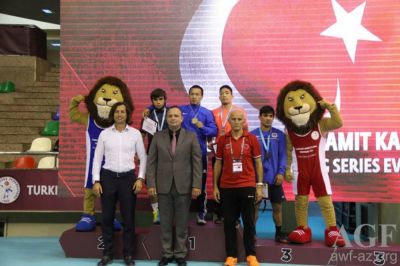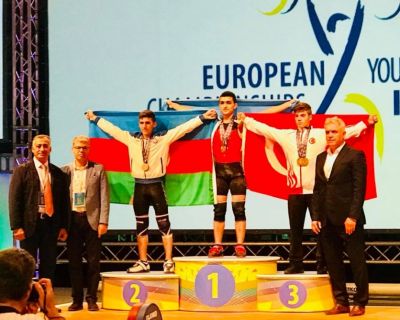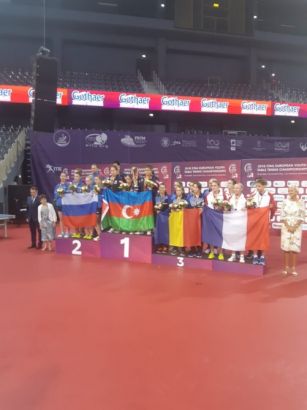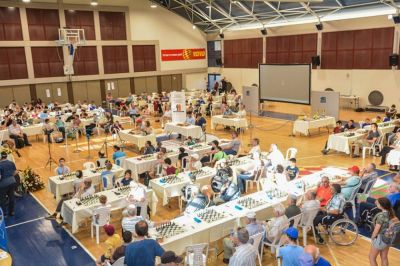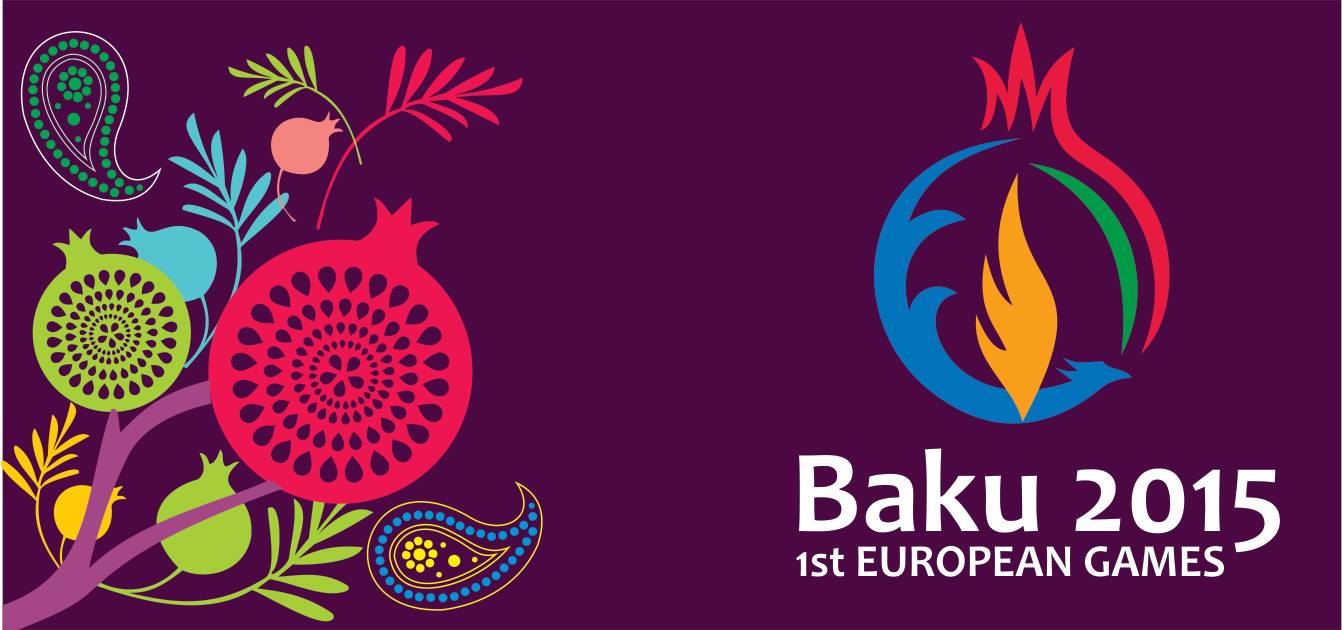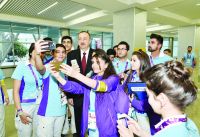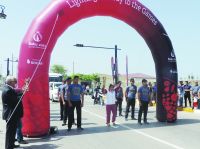The European Azerbaijanis` Karabakh Forum has been held in Brussels, Belgium. The conference was co-organized by Azerbaijan`s State Committee on Work with Diaspora and the European Azerbaijanis` Congress.
Participants in the event included the Azerbaijani President’s Assistant for Public and Political Affairs Ali Hasanov, members of the European Parliament, European politicians, experts, and heads of Azerbaijan`s diaspora organizations in Europe.
The President’s Assistant Ali Hasanov addressed the event.
“It is crucially important to hold discussions on the ways of finding a solution to the crisis caused by dangerous tendencies such as international terrorism and ethnic separatism in the Mediterranean basin that links the European Union, North African, Middle East, and Southeast European countries. We are all concerned about the difficulties in tackling the refugee and migrant problems, human trafficking and smuggling, as well as in addressing threats to political and economic stability, and transport and energy security. Observations show that ethnic separatism and its negative manifestations occupy a special place among these threats,” Ali Hasanov noted.
“The strengthening of ethnic separatism tendencies in the modern world is one of the key factors adversely affecting the regional and international security and humanity`s existence in peace and tranquility. There are currently over 50 main hotbeds of ethnic separatism in the world stretching 12.7 million square kilometers and affecting more than 220 million people. More than twenty of the conflicts caused by ethnic separatism have resulted in military clashes.”
“The geography of the spread of ethnic conflicts covers almost all parts of the world. Ethnic conflicts between a number of countries, including Great Britain with Northern Ireland and Scotland, Belgium with Flanders and Wallonia, France with Paris Agglomeration and Corsica, Spain with Basques and Catalonia, and Serbia with Kosovo in Europe, Israel with Palestine, India with Kashmir and Punjab, and China with Tibet in Asia, Nigeria with North Nigeria, Sudan with South Sudan in Africa, Canada with Quebec, and Mexico with Chiapas in America have been ongoing for many years,” he said.
“The end of the Cold War saw the emergence of a new wave of ethnic separatism tendencies in the former Soviet Union. The Nagorno-Karabakh conflict in Azerbaijan, Abkhazia and Ossetia conflicts in Georgia, and Transnistrian conflict in Moldova deteriorated into potential sources of danger that could undermine stability in the region at any time. These conflicts lead to gross violations of international legal principles and serious threats to the territorial integrity and sovereignty of states.”
“It is crucial that influential international organizations such as the UN, OSCE and the Council of Europe resolutely fight against ethnic separatism. Otherwise, as a negative tendency, ethnic separatism can turn a vast part of the world into an area of inter-ethnic conflicts,” Ali Hasanov said.
“Unfortunately, the double standards policy, which nowadays dominates the system of international relations, hinders a resolute and principled fight against ethnic separatism. In some cases, the leading international organizations turn a blind eye to the fact that some states do not obey legal norms, which envisage the elimination of ethnic separatism, the employment of effective fight methods and mechanisms of punishing criminals. And this casts a shadow on the objectivity and principled stand of international organizations as the UN, OSCE and the Council of Europe. Therefore, these organizations should give up their double standard approach and step up their efforts to resolve ethnic conflicts within international legal norms.”
“Nowadays, religious, racial and national intolerance, and destructive separatism forces masses of people to live a refugee and migrant life. It should be noted that Azerbaijan, which has been subjected to Armenia`s policy of ethnic cleansing and occupation, very well understands the difficulties existing in this area. The country faced the Armenian separatism back in 1918 when Azerbaijan Democratic Republic declared its independence. At the time of the former Soviet Union, the Armenians' separatist movements against Azerbaijan switched from the active phase to a relatively red-hot conflict phase. However, after the collapse of the USSR Armenia began to pursue the policy of ethnic separatism and aggression, putting forward groundless territorial claims against Azerbaijan. The Armenian armed forces committed a genocide against the Azerbaijani population in Khojaly in February 1992. Twenty per cent of the Azerbaijani territories was occupied as a result of the Nagorno-Karabakh conflict, which was caused by ethnic separatism and territorial claims of the Armenians. The activity of the so-called “Nagorno-Karabakh” regime established by the Armenian separatists – helped by Armenia – in the territory of Azerbaijan is a flagrant violation of international law. Unfortunately, when it comes to this problem the United Nations and other organizations as well as world powers that claim to fulfil a mission to ensure international legal principles, continue to watch in silence,” Ali Hasanov said.
“Azerbaijan’s position is that it is unacceptable to establish a state within the international law-defined territory of another state and to resort to any national, ethnic separatism in order to achieve this goal. Azerbaijan warns the world community of the dangers that the Nagorno-Karabakh conflict may cause in the region and urges it to take resolute and practical steps and force Armenia to refrain from the policy of occupation. We believe that if the aggressor is not stopped, the international community` efforts to establish peace and stability in the world will collapse and the scale of ethnic conflicts will widen, which is a great threat to the world order.”
“The issues of nationalism and ethno-cultural terrorism require thoughtful consideration of religious beliefs, co-existence of national cultures and prospects for ensuring ethnic diversity. Unfortunately, sometimes we observe negative approaches to this issue. It is often wrongly believed that intercultural dialogue or ethnic diversity would lead to destructive processes undermining national identity, and that ethnic groups and migrants would cause socio-political and cultural problems in the countries they move to. Naturally, it is impossible to agree with this position because it is impossible to imagine progressive development of humanity without intercultural dialogue and ethnic diversity. Therefore, intercultural dialogue and ethnic diversity are considered as one of the crucial preconditions for a stable and sustainable development of society in the civilized world, including in Azerbaijan, which is a part of it,” Ali Hasanov stressed.
“Having declared its keenness to establish relations with the European Union back in 1993, my country embarked on collaboration with this organization in a variety of fields. The European Union highly appreciates what Azerbaijan has done under the Neighborhood Policy and Eastern Partnership initiatives as well as in the field of civil society building. Azerbaijan and the EU share common geopolitical interests with regard to the regional security of the South Caucasus and the Caspian-Black Sea basin, with large transnational corporations representing the EU being closely involved in transnational projects in the region.”
“The implementation of transnational energy and transport projects such as Baku-Tbilisi-Ceyhan, Baku-Tbilisi-Erzurum oil and gas pipelines as well as Baku-Tbilisi-Kars railway has been possible due to the strategic partnership between Azerbaijan and the EU. The EU supports Azerbaijan’s policy of joint exploitation of the Caspian Sea's energy resources and their export to the European markets through alternative transnational projects, and reconstruction of multiple transit systems within the East-West and North-South transport corridors to modern standards,” the Presidential Assistant said.
“The partnership agreement signed between the EU and Azerbaijan in 2007 was one of the important steps towards the implementation of the Southern Gas Corridor. Initiated by Azerbaijan, projects such as the Trans-Anatolian Pipeline (TANAP) and Trans-Adriatic Gas Pipeline (TAP) have won necessary support from the EU and have been included in the list of the European Commission`s priority energy security projects that serve common interests. The EU also highly appreciates what Azerbaijan has done on the Southern Gas Corridor project, which envisages delivery of vast energy resources of the Caspian basin and the Middle East to the European markets.”
“But it is not only thanks to its role in ensuring energy supply and security of Europe and partnership within Neighborhood Policy that Azerbaijan is considered one of the EU`s reliable partners since the country is directly involved in peacebuilding processes in different parts of the world, including Afghanistan, Iraq, Balkans, etc., and provides NATO with non-military resources and a safe air corridor.”
“Negotiations on a new agreement between the EU and Azerbaijan are now ongoing. I believe that the signing of this document will open plenty of opportunity for reinforcing wide-ranging cooperation in the fields of political dialogue, human rights, trade, investment, economy, legislation, culture, etc.,” he noted.
“Unfortunately, the unsettled problems such as the Armenia-Azerbaijan Nagorno-Karabakh conflict impede prospective development of Azerbaijan's high-level partnership with the EU. Armenia continues its policy of occupation towards Azerbaijan in defiance of the relevant resolutions of the United Nations and the European Union. I believe that the EU's taking a tough line on the aggressor could be another key factor in strengthening the strategic partnership between Azerbaijan and the organization in the future.”
“I would like to mention the importance of using the opportunities created by intercultural dialogue and ethnic diversity for eliminating national and ethnic conflicts, religious intolerance, refugee and migrant problems and for ensuring people`s civilized coexistence. At the same time, it should always be kept in mind that strengthening political, socio-economic, cultural, and scientific and technological interaction between countries is one of the most effective ways of addressing global problems facing humanity,” Ali Hasanov concluded.
© İstifadə edilərkən "Xalq qəzeti"nə istinad olunmalıdır.





